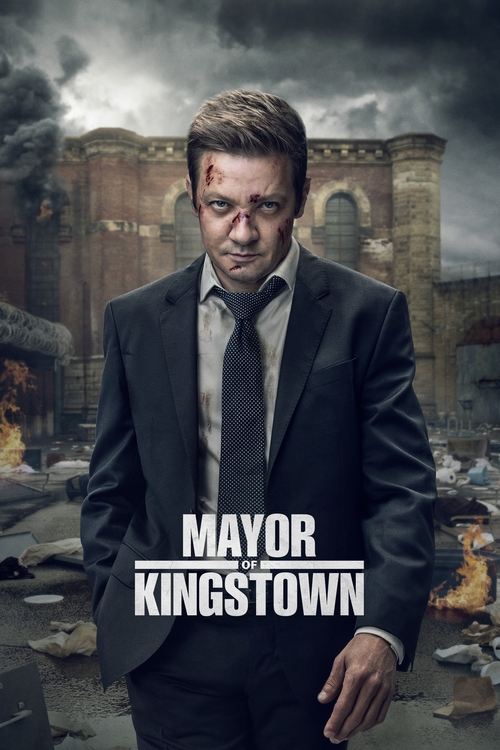
Ask Your Own Question
What is the plot?
The episode begins with a focus on the Kingdom, where King Ezekiel is seen interacting with his people. He is in a good mood, engaging with the community and showing his leadership skills. However, there is an underlying tension as the threat of the Saviors looms over them. The atmosphere is light, but the audience can sense the weight of the impending conflict.
Meanwhile, Carol is in her home, reflecting on her past and the choices she has made. She is visibly troubled and conflicted about her role in the ongoing war against the Saviors. Her internal struggle is palpable as she grapples with her desire for peace versus the necessity of fighting for survival. She receives a visit from Ezekiel, who tries to encourage her to rejoin the community and fight alongside them.
The narrative shifts to the Saviors' compound, where we see a group of Saviors led by Gavin. They are discussing their plans and the need to assert their dominance over the Kingdom. Tensions rise as they express their disdain for the Kingdom's defiance. Gavin's leadership style is harsh, and he emphasizes the importance of maintaining control over their territory.
Back at the Kingdom, Ezekiel and his people prepare for a potential confrontation with the Saviors. They gather weapons and strategize on how to defend their home. Ezekiel's determination to protect his people is evident, but there is also a sense of dread among the community members as they realize the stakes of the conflict.
As the episode progresses, we see a pivotal moment when a group of Kingdom residents, including Richard, confront Ezekiel about the need to take action against the Saviors. Richard is particularly vocal, advocating for a preemptive strike. He believes that waiting for the Saviors to attack will only lead to more suffering. Ezekiel, however, remains hesitant, valuing the lives of his people and the hope for a peaceful resolution.
Richard's frustration grows, and he makes a drastic decision. He takes matters into his own hands and sets a plan in motion to provoke the Saviors. He believes that by sacrificing one of their own, they can rally the Kingdom to fight back. He chooses to use a member of their community, which leads to a heated argument with Ezekiel, who is adamantly against the idea.
In a tense scene, Richard's plan unfolds as he attempts to lure the Saviors into a trap. He sets up a meeting point and waits for them to arrive. However, the plan goes awry when the Saviors do not respond as expected. Richard's desperation becomes evident as he realizes that his actions may have dire consequences for the Kingdom.
The situation escalates when the Saviors finally arrive, and a confrontation ensues. Richard's plan backfires, leading to chaos as the Saviors retaliate. The Kingdom's residents are caught off guard, and the tension reaches a boiling point. Ezekiel is forced to step in and try to negotiate, but the Saviors are not interested in peace.
In the midst of the chaos, a tragic event occurs. Richard's actions lead to the death of a beloved member of the Kingdom, which devastates the community. Ezekiel is heartbroken and feels responsible for not taking action sooner. The emotional weight of the loss hangs heavy over the Kingdom, and the residents are left to grapple with their grief and anger.
The episode concludes with Ezekiel making a pivotal decision. He realizes that the time for peace has passed, and they must prepare for war against the Saviors. The final scenes show him rallying his people, instilling a sense of hope and determination despite the recent tragedy. The Kingdom stands united, ready to face the challenges ahead, setting the stage for the conflict that is to come.
What is the ending?
In the ending of "Bury Me Here," the episode culminates in a tragic confrontation at the Hilltop community. After a series of tense interactions, the episode concludes with the death of a key character, leading to a significant emotional fallout among the survivors. The episode ends with a sense of loss and unresolved conflict, setting the stage for future confrontations.
As the episode unfolds, we begin with the Hilltop community, where tensions are palpable. The episode opens with a focus on the character of Gregory, who is struggling with his leadership and the pressure from the people around him. He is seen trying to maintain control but is clearly feeling the weight of his position. His interactions with Maggie reveal his insecurities, as he attempts to undermine her growing influence among the Hilltop residents.
The narrative shifts to the character of Sasha, who is grappling with her own internal conflicts. She is seen reflecting on her past decisions and the losses she has endured. Her emotional state is fragile, and she is determined to find a way to contribute to the fight against Negan and the Saviors. Sasha's resolve leads her to make a pivotal decision regarding her future.
As the episode progresses, we witness a confrontation between Gregory and Maggie. Gregory's jealousy and fear of losing power come to a head, and he attempts to assert his authority over her. However, Maggie stands her ground, demonstrating her strength and leadership qualities. This scene is charged with tension, as it highlights the struggle for power within the community.
Meanwhile, Sasha's storyline takes a darker turn. She makes a choice that will ultimately lead to her fate being sealed. In a moment of desperation, she decides to take a drastic step to protect her friends and allies. This decision is fraught with emotion, as it reflects her desire to fight back against the oppressive forces they face.
The climax of the episode occurs when Sasha's plan comes to fruition. In a heart-wrenching moment, she sacrifices herself in a bid to take down the Saviors. This act of bravery is both tragic and heroic, showcasing her growth as a character. The emotional weight of her decision reverberates through the remaining characters, particularly those who have formed close bonds with her.
As the episode draws to a close, the aftermath of Sasha's sacrifice is felt deeply among the group. The remaining characters are left to grapple with their grief and the implications of her actions. The final scenes depict the somber mood as they process their loss, highlighting the emotional toll of their ongoing struggle against Negan.
In summary, the episode "Bury Me Here" concludes with Sasha's sacrifice, leaving the Hilltop community and its residents in a state of mourning and uncertainty. The fate of Gregory remains ambiguous, as he continues to navigate his role as a leader. The emotional fallout from Sasha's decision sets the stage for future conflicts, emphasizing the ongoing battle for survival in a world overrun by the undead and oppressive human threats.
Is there a post-credit scene?
In "Bury Me Here," the thirteenth episode of Season 7 of The Walking Dead, there is no post-credit scene. The episode concludes without any additional scenes or content after the credits roll. The focus remains on the intense emotional and narrative developments that occur throughout the episode, particularly surrounding the characters of Ezekiel, Carol, and the Kingdom, as well as the ongoing tensions with the Saviors. The absence of a post-credit scene allows the weight of the episode's events to linger, emphasizing the themes of loss, sacrifice, and the struggle for survival in a world overrun by the undead.
What happens to the character of Benjamin in this episode?
In this episode, Benjamin, a young member of the Kingdom, faces a tragic fate. During a confrontation with the Saviors, he is taken hostage and ultimately killed by them. His death serves as a pivotal moment for the Kingdom and deeply affects his mentor, Ezekiel.
How does Ezekiel react to Benjamin's death?
Ezekiel is devastated by Benjamin's death. He experiences a profound sense of loss and guilt, feeling responsible for not being able to protect him. This emotional turmoil leads him to confront his leadership and the harsh realities of their situation.
What is the significance of the title 'Bury Me Here'?
The title 'Bury Me Here' reflects the emotional weight of the episode, particularly in relation to Benjamin's death and Ezekiel's grief. It symbolizes the desire for peace and the struggle to find meaning in loss, as characters grapple with the consequences of their choices.
What role does Carol play in this episode?
In this episode, Carol is shown grappling with her own feelings of isolation and guilt. She has a conversation with Ezekiel, where she expresses her concerns about the Kingdom's situation and her own reluctance to engage in the ongoing conflict. Her character's internal struggle highlights the emotional stakes of the narrative.
How does the episode explore the theme of leadership through Ezekiel's character?
Ezekiel's leadership is put to the test in this episode as he faces the consequences of his decisions. After Benjamin's death, he must confront the reality of his role as a leader and the burden of responsibility for his people. This exploration of leadership is central to his character's development and the overall narrative.
Is this family friendly?
"Bury Me Here," the 13th episode of Season 7 of The Walking Dead, contains several elements that may be objectionable or upsetting for children or sensitive viewers.
-
Violence: The episode features intense scenes of violence, including confrontations between characters that may be graphic and disturbing.
-
Death: There are significant themes surrounding death, including the emotional impact of losing loved ones, which may be heavy for younger viewers.
-
Emotional Distress: Characters experience deep emotional turmoil, including grief and despair, which could be upsetting for sensitive audiences.
-
Tension and Conflict: The episode builds tension through interpersonal conflicts and moral dilemmas, which may create a stressful viewing experience.
-
Dark Themes: The overarching themes of survival in a post-apocalyptic world, including betrayal and loss, may be too intense for children.
These elements contribute to the overall tone of the series, which is often dark and mature, making it less suitable for a family-friendly viewing experience.































